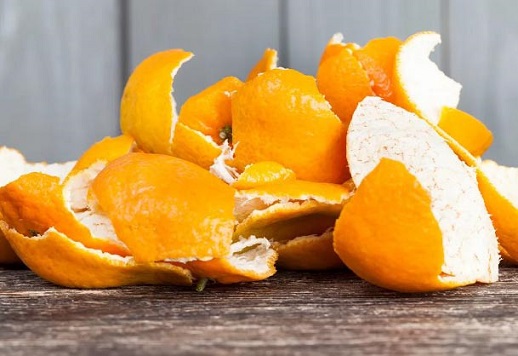Nikhil Prasad Fact checked by:Thailand Medical News Team Jul 22, 2024 1 year, 4 months, 4 weeks, 1 day, 7 hours, 33 minutes ago
Herbs And Phytochemicals: Researchers Discover Potential of Citrus Waste in Nutraceuticals.
In an exciting development, researchers from the University of Messina, Bambino Gesù Children's Hospital in Rome-Italy, and the University of Bologna-Italy have uncovered the potential health benefits of citrus pomace, a by-product of fruit processing. This
Herbs And Phytochemicals news report explores their findings, highlighting the promise of citrus pomace in addressing inflammatory bowel diseases (IBD).
 Citrus pomace shows promise in combating intestinal inflammation
What is Citrus Pomace?
Citrus pomace shows promise in combating intestinal inflammation
What is Citrus Pomace?
Citrus pomace, also known as pastazzo, is the leftover residue from processing citrus fruits like oranges and lemons. Traditionally seen as waste, this by-product is rich in valuable compounds, including polyphenols, polysaccharides, vitamins, and minerals. The researchers sought to harness these bioactive compounds for nutraceutical purposes, particularly in the context of intestinal inflammation.
The Study: A Deep Dive into Citrus Pomace
The study aimed to extract and analyze bioactive compounds from orange and lemon pomace. Using advanced techniques like ultrasound-assisted maceration, proton nuclear magnetic resonance (1H-NMR), and liquid chromatography coupled with diode array detection and electrospray ionization mass spectrometry (LC-DAD-ESI-MS), the team identified and characterized the primary and secondary metabolites in the pomace.
Phytochemical Profile: Rich in Bioactive Compounds
The phytochemical analysis revealed that both orange and lemon pomace extracts are rich in sugars, organic acids, and amino acids. Fructose was the most abundant sugar, followed by glucose and sucrose. Citric acid was more prevalent in lemon pomace, while orange pomace contained higher levels of malic and succinic acids.
In terms of secondary metabolites, flavonoids were the most prominent class, with flavones and flavanones being the primary compounds. The extracts also contained significant amounts of phenolic acids, limonoids, and anthocyanins. These bioactive compounds are known for their strong antioxidant and anti-inflammatory properties.
Bioaccessibility and Potential Health Benefits
To assess the potential health benefits of the extracts, the researchers simulated the digestive process in vitro. They found that the bioactive compounds in the extracts remained stable throughout digestion, indicating their potential effectiveness in the human body.
The extracts demonstrated significant antioxidant and anti-inflammatory activities. They were able to protect intestinal cells from oxidative stress and inflammation induced by lipopolysaccharides (LPS). The extracts also helped maintain the integrity of the intestinal barrier, reducing the risk of gut permeability, which is often associated with IBD.
Detailed Findings: A Closer Look at the Antioxidan
t and Anti-Inflammatory Effects
-Antioxidant Activity:
The extracts showed strong radical-scavenging activity in various assays, including DPPH, TEAC, and FRAP.
The orange and lemon pomace extracts significantly reduced the levels of reactive oxygen species (ROS) in intestinal cells.
They also enhanced the expression of key antioxidant genes like CAT, NRF2, and SOD2.
-Anti-Inflammatory Activity:
The extracts inhibited the expression of pro-inflammatory genes such as IL-1β, IL-6, TNF-α, and IL-8.
They reduced the nuclear translocation of NF-κB p65, a key factor in the inflammatory response.
The extracts improved the transepithelial electrical resistance (TEER) of intestinal cell monolayers, indicating better barrier function.
Implications for Inflammatory Bowel Disease (IBD)
Inflammatory bowel diseases, including Crohn's disease and ulcerative colitis, affect millions of people worldwide. These chronic conditions cause recurrent inflammation of the gastrointestinal tract, leading to symptoms like abdominal pain, diarrhea, and weight loss. Current treatments often involve drugs that can have serious side effects and may not always achieve long-term remission.
The findings of this study suggest that citrus pomace extracts could offer a natural alternative for managing IBD. The extracts' ability to reduce inflammation and oxidative stress, while protecting the intestinal barrier, makes them promising candidates for further preclinical and clinical studies.
Future Directions
The researchers emphasize the need for additional studies to fully understand the mechanisms behind the beneficial effects of citrus pomace extracts. They also highlight the importance of developing standardized extraction processes to ensure consistent quality and efficacy of the extracts.
Conclusion
This groundbreaking study reveals the untapped potential of citrus pomace in the nutraceutical field, particularly for treating intestinal inflammation. By transforming what was once considered waste into a valuable health resource, the researchers have opened new avenues for natural, effective treatments for IBD.
The study findings were published in the peer-reviewed journal: Antioxidants.
https://www.mdpi.com/2076-3921/13/7/869
For the latest
Herbs And Phytochemicals, keep on logging to Thailand Medical News.
Read Also:
https://www.thailandmedical.news/news/herbs-and-phytochemicals-oxymatrine-from-sophora-flavescens-provides-relief-for-ulcerative-colitis
https://www.thailandmedical.news/news/herbs-and-phytochemicals-atractylodes-macrocephala-koidz-offers-symptom-relief-for-ibs-through-ion-channel-modulation
